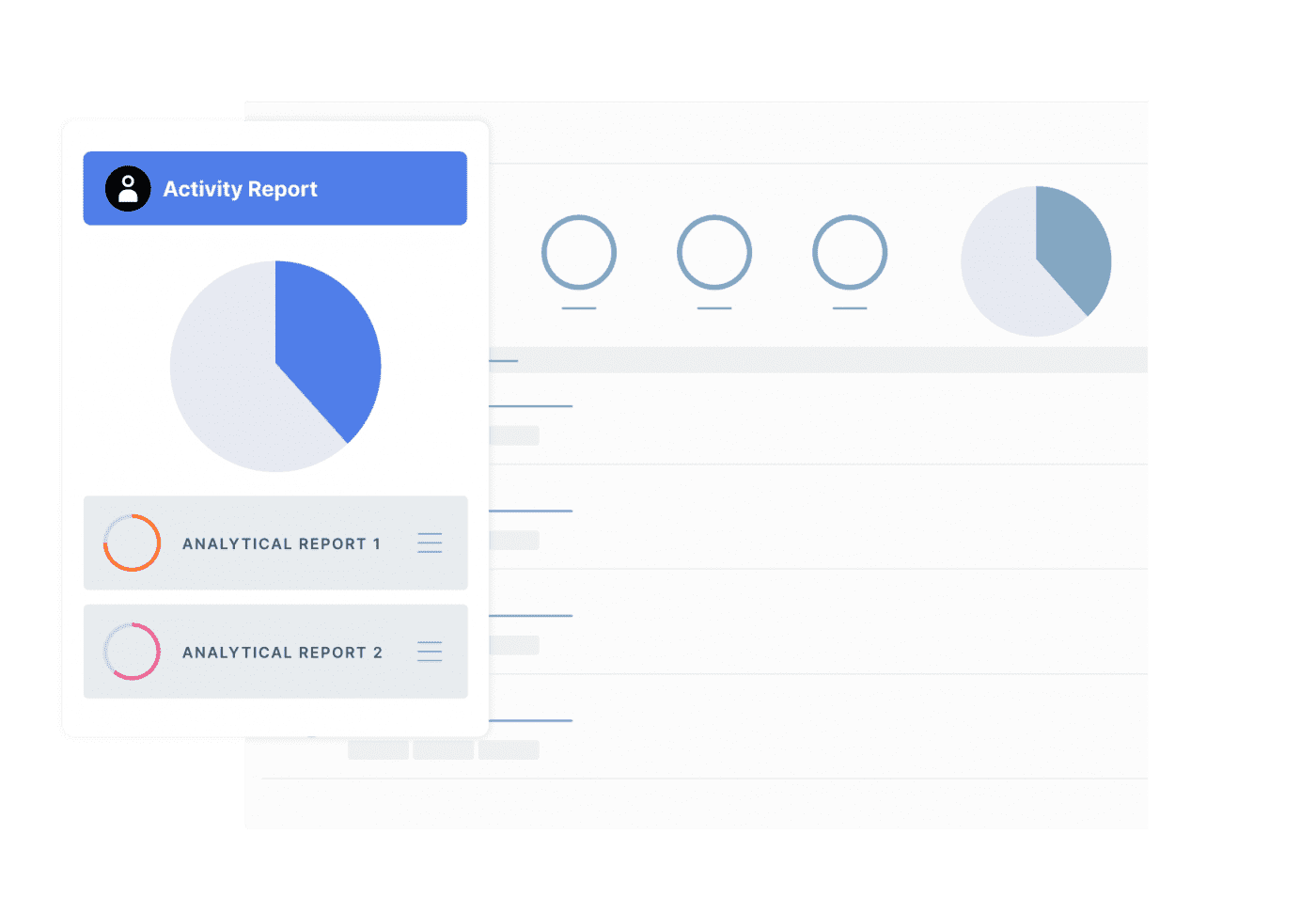
Shaping the Future: AI Legislative Initiatives Across Latin America

This blog was originally posted on 29th September, 2025. Further regulatory developments may have occurred after publication. To keep up-to-date with the latest compliance news, sign up to our newsletter.
AUTHORED BY CECÍLIA FERREIRA DE CARVALHO, REGULATORY COMPLIANCE SPECIALIST, COMPLIANCE & RISKS
Artificial Intelligence (AI) is revolutionizing the world as we know it, transforming industries, enhancing services, and creating new opportunities and challenges. As these technologies advance, it becomes crucial to establish regulatory frameworks that ensure their development and use in an ethical, safe, and sustainable manner.
In this context, Latin American countries are developing comprehensive AI legislation based on principles and guidelines outlined in international roadmaps to ensure the ethical and responsible adoption of AI.
Amid this sea of regulations, this blog highlights key AI legislative proposals and regulations across Latin America, emphasizing what to expect and the potential impacts these initiatives may bring.
Brazil Launches Experimental AI Sandbox Regulation
The Brazilian National Data Protection Authority (ANPD) announced in June the call for participation in its Pilot Regulatory Sandbox for Artificial Intelligence and Data Protection. Running until December 2026, the program is divided into two stages: selection and involvement in the experimental environment. The final list of selected projects will be published starting October 2, 2025.
Aligned with this innovation, the Brazilian National Telecommunications Agency (ANATEL) opened Public Consultation No. 31 on regulating the ethical use of artificial intelligence (AI) in the telecommunications sector.
The consultation seeks to establish guidelines for the ethical use of AI applications throughout the entire telecommunications value chain, aiming to align the sector with international recommendations, particularly those from UNESCO and the ITU.
The initiative places special emphasis on risks linked to AI in connectivity services, especially those involving data collection and decision-making based on network traffic information. At the same time, it encourages the development of solutions that support the UN Sustainable Development Goals, highlighting the mutual and reinforcing relationship between AI and connectivity.
Similar to other countries, Brazil has also introduced legislative proposals aimed at regulating the use of AI. These initiatives seek to protect mental health, require warnings and age recommendations for AI tools, establish guidelines for their responsible use, and mandate clear identification of AI-generated content.
Chile’s AI Policy: Driving Innovation and Regional Leadership
Chile published its first National Artificial Intelligence Policy in 2021. Since then, the country has made significant progress in the field: the creation of the National Center for Artificial Intelligence (CENIA), the rollout of 5G networks, the implementation of the Ethical Algorithms Project, among other initiatives.
These advances positioned Chile as a regional leader in the Latin American AI Index (CENIA, 2023), with particular strengths in areas such as data infrastructure, advanced human capital, research, and connectivity. The policy was updated in 2024 to further consolidate these achievements and address new challenges in the rapidly evolving AI landscape.
In parallel, the country has introduced a proposal for the Regulation on Artificial Intelligence Systems, submitted to the National Congress in 2024. The initiative is currently in its first legislative stage before the Committee on the Future, Science, Technology, Knowledge and Innovation of the Chamber of Deputies.
The proposal builds on the work of multiple bodies: the AI Expert Committee, congressional commissions, and working groups with industry, academia, and civil society. It also draws on international principles and recommendations from organizations such as UNESCO and the OECD.
Together, Chile’s updated National AI Policy and the ongoing legislative efforts demonstrate the country’s commitment to advancing artificial intelligence in a way that balances innovation with ethical responsibility, positioning Chile as a leader in shaping the future of AI in Latin America.
Peru Implements Three-Tier Risk Framework for AI Governance
Earlier this September, the Peruvian President of the Council of Ministers approved Law No. 31814, promoting the use of AI to drive Peru’s economic and social development. The regulation sets out rules for the ethical, sustainable, and responsible use of AI, emphasizing human rights and prioritizing people within the country’s national digital transformation efforts.
The regulation establishes a three-tier AI risk framework. Prohibited uses include manipulative practices, autonomous weapons, unauthorized mass surveillance, and predictive policing. High-risk AI requires enhanced oversight, while all others are low-risk with basic compliance.
For high-risk systems, developers must ensure transparency, explaining automated decisions in clear language. Deploying organizations must maintain human oversight, with trained personnel able to override AI decisions.
The regulation will primarily enter into force on 8 December 2025, except for certain provisions. Public entities and private-sector actors will follow a phased implementation schedule spanning one to four years, depending on their sector and size.
Panama Emerges as a Regional Hub for Ethical and Inclusive Artificial Intelligence
Panama is emerging as a regional hub for artificial intelligence by advancing a National AI Strategy and promoting its adoption in critical sectors to support inclusive and sustainable development.
The country emphasizes the safe, ethical, and reliable use of AI through initiatives like the Spark AI Summit 2025, which gathers experts and innovators to showcase advancements and foster collaboration, and the GerencIA Panamá program, which strengthens AI literacy and management skills among leaders to integrate technology effectively.
Alongside these initiatives, the Panamanian National Assembly is considering legislative proposals aimed at regulating artificial intelligence and establishing digital rights and citizen protections. These initiatives are part of a broader effort to create a comprehensive legal framework for AI governance in Panama.
Are you interested in learning more about Product & Sustainability Developments in Latin America? Check out our blog!
Colombia Introduces a New Comprehensive Proposal for the Promotion, Development, and Responsible Use of Artificial Intelligence
After several unsuccessful proposals in its Congress over recent years, Colombia has introduced a new initiative aimed at establishing a legal framework for the use of AI. The proposed law seeks to promote the responsible development, implementation, and use of AI in Colombia, fostering innovation, competitiveness, and digital transformation.
The initiative emphasizes governance based on self-regulation, ethics, transparency, protection of fundamental rights, and technological sovereignty, while coordinating efforts across public, private, academic, and social sectors.
It sets out guiding principles for AI use and development and establishes the National Council for Artificial Intelligence (CON-IA), a coordinating, advisory, and policy-alignment body attached to the Office of the President. If passed, the law is expected to provide Colombia with a clear regulatory framework for AI, promoting innovation while safeguarding ethical standards and fundamental rights.
Uruguay Becomes First Latin American Nation to Sign Council of Europe AI Treaty
In early September, Uruguay signed the Council of Europe’s Framework Convention on Artificial Intelligence and Human Rights, Democracy and the Rule of Law, the first-ever international legally binding treaty designed to ensure that AI systems are used in full compliance with human rights, democratic principles, and the rule of law.
By doing so, Uruguay became the first Latin American country to join the treaty, joining 16 other signatories to date, including Council of Europe member states, as well as Canada, Israel, Japan, and the United States.
The Framework Convention establishes a comprehensive legal structure covering the entire lifecycle of AI systems. It aims to foster innovation and progress in AI while mitigating potential risks to human rights, democracy, and the rule of law, all within a technology-neutral framework designed to remain relevant over time.
In late 2024, the country had already approved the National Artificial Intelligence Strategy 2024–2030. This strategy serves as the cornerstone for implementing a comprehensive AI public policy that involves both the public and private sectors, as well as all relevant stakeholders.
Looking ahead, Uruguay is expected to align its national AI policies with the treaty’s principles. This alignment may lead to the introduction of new laws or the revision of existing ones to incorporate these standards.
Mexico’s National AI Agenda and Emerging Regulations
Mexico’s artificial intelligence landscape is growing, marked by a push for regulation through proposed federal laws and the creation of a National AI Agenda.
In 2024, the National Artificial Intelligence Agenda for Mexico 2024–2030 was presented in the Senate. The initiative outlines a proposed Artificial Intelligence Strategy for Mexico with a multisectoral approach, highlighting AI’s significance for the country’s future and the need for policies to maximize its benefits while mitigating potential risks.
With a clear roadmap for implementation, the strategy aims to build a resilient digital economy, enhance governance, and ensure the nation is prepared to navigate the challenges and opportunities of an increasingly dynamic digital world.
Similar to other countries, Mexico has introduced several legislative proposals aimed at approving comprehensive legislation on AI. These proposals establish the parameters and principles for developing and using AI systems, with a focus on human rights and data protection.
Looking ahead, Mexico’s AI landscape is set for growth, guided by the National AI Agenda and emerging legislation. With a focus on innovation, human capital, and ethical governance, the country aims to strengthen its digital economy, harness AI’s opportunities, and address its risks.
Latin America AI Regulations: What to Expect Next?
Latin American countries are rapidly advancing toward comprehensive AI regulation. Governments are focusing on frameworks that ensure accountability, protect fundamental rights, and promote sustainable and inclusive AI adoption across industries and public services.
The European Union’s AI Act has served as an important reference, offering a detailed framework for classifying and regulating AI systems according to their risk levels. Similarly, the OECD’s principles emphasize transparency, safety, and accountability in AI development, while UNESCO’s guidelines advocate for a human-centered approach, promoting social justice and environmental sustainability.
Looking ahead, the region is likely to prioritize harmonization of standards, alignment with international principles, and development of strategies that foster innovation while mitigating risks such as bias, misuse, and privacy violations.
Want to stay on top of Chemical Compliance in Latin America? Download our new whitepaper!
Stay Ahead Of Regulatory Changes in Latin America AI Regulation
Want to stay ahead of regulatory developments in Latin America AI Regulation?
Accelerate your ability to achieve, maintain & expand market access for all products in global markets with C2P – your key to unlocking market access, trusted by more than 300 of the world’s leading brands.
C2P is an enterprise SaaS platform providing everything you need in one place to achieve your business objectives by proving compliance in over 195 countries.
C2P is purpose-built to be tailored to your specific needs with comprehensive capabilities that enable enterprise-wide management of regulations, standards, requirements and evidence.
Add-on packages help accelerate market access through use-case-specific solutions, global regulatory content, a global team of subject matter experts and professional services.
- Accelerate time-to-market for products
- Reduce non-compliance risks that impact your ability to meet business goals and cause reputational damage
- Enable business continuity by digitizing your compliance process and building corporate memory
- Improve efficiency and enable your team to focus on business critical initiatives rather than manual tasks
- Save time with access to Compliance & Risks’ extensive Knowledge Partner network

Simplify Corporate Sustainability Compliance
Six months of research, done in 60 seconds. Cut through ESG chaos and act with clarity. Try C&R Sustainability Free.


